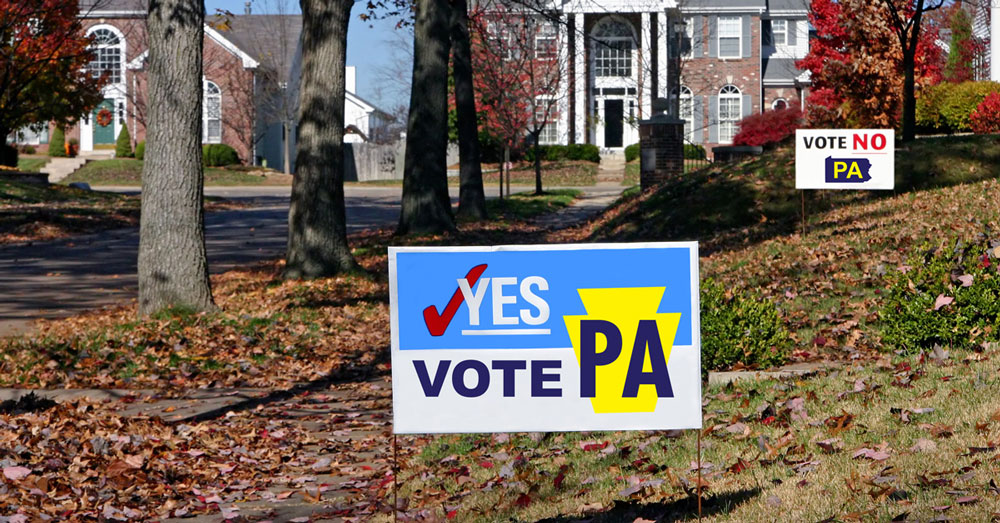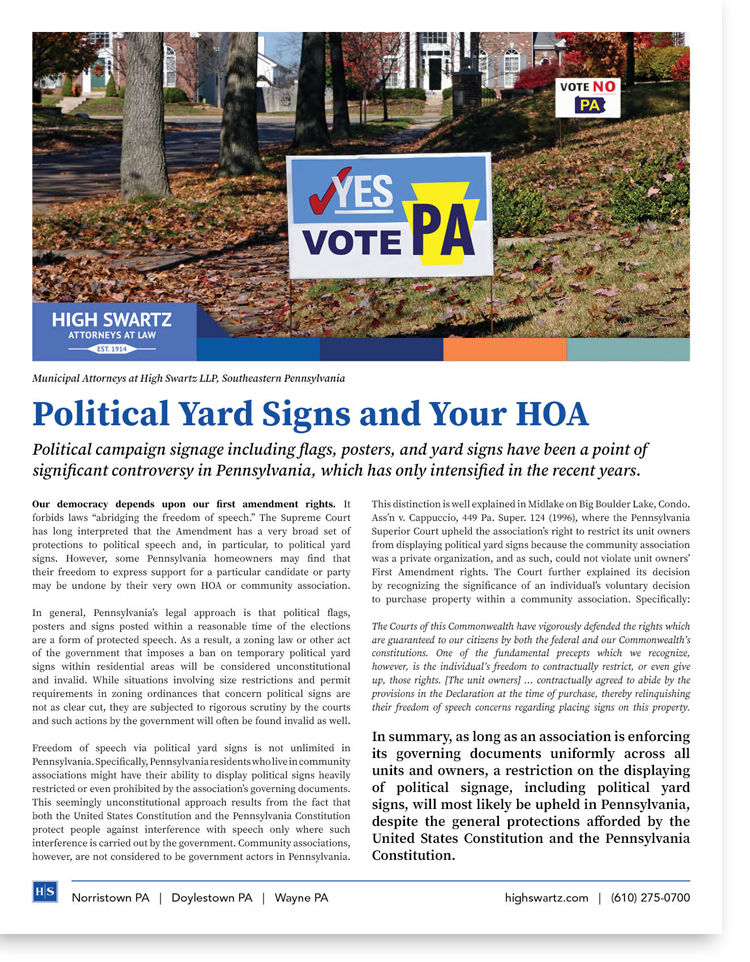If you’re a landlord, you might have faced this very real question: how do I evict a tenant? After all, it isn’t all that unusual to have an inconsiderate, messy, or possibly even dangerous tenant. So at some point, you may decide that it’s necessary to part ways and evict them from your property.
But here’s the catch. Evicting a tenant isn’t as easy as you might expect. For example, residential landlords are often surprised about the numerous requirements and the time it takes to evict. There’s also time and monetary costs to consider.
In Pennsylvania, the Landlord and Tenant Act governs the process. And strict compliance is vital to ensure that you evict a tenant legally. After reading this article, you may want to talk with a real estate attorney near you to cover all the bases. Our firm has years of experience assisting residential and commercial landlords in navigating their rights in Pennsylvania and the mid-Atlantic region.
Steps Required for Evicting Tenants
Although various jurisdictions may differ slightly, typically, the process for how to evict a tenant follows these steps:
- Ensure you have appropriate grounds for an eviction
- Serve an official written eviction notice to the tenant
- Serve a summons and complaint if the tenant fails to comply
- Attend a court hearing and judgment
- Issuance of a writ of execution evicting the tenant
- Gaining possession of the property
So, as you can see, the process can take some time, anywhere from a month to two months or more from start to completion.
Grounds for Evicting a Tenant
The first step in an eviction is determining the basis for the removal. Pennsylvania requires a landlord to comply with notice requirements. In addition, the notice must include the tenant’s violation prompting the eviction. And that violation must be a valid reason. There are plenty of factors in play currently due to the pandemic and it's fallout, so touching base with a real estate attorney would be prudent to get the latest information.
You have grounds to evict a tenant for any one of these violations:
Failure to Pay Rent
Unsurprisingly, the primary reason for an eviction notice is a tenant who fails to pay rent or does so habitually. In Pennsylvania, rent is late one day after due. A landlord can take steps to evict the tenant with a 10-Day Notice to Quit, giving them ten days to settle unpaid rent. If the tenant fails to pay after the notice to quit, a landlord can continue filing an eviction action.
Violations of the Rental Agreement
Pennsylvania allows a landlord to evict a tenant for violating written lease terms. For example, the tenant may have a pet or roommate prohibited by the lease agreement. In this case, the landlord presents a 15-Day Notice to Quit for tenants residing at the property for one year or less.
For tenants residing at the property for greater than one year, the landlord presents a 30-Day Notice to Quit.
In either case, the tenant must move out of the property within that timeframe. Otherwise, the landlord can file an action to evict them.
Illegal Activities
Landlords can give tenants a 10-Day Notice to Quit for performing illegal activities on the property. For example, if a tenant creates, distributes, or uses controlled substances. Or if police seize drugs from the tenant’s rental unit.
Other examples include using the property for gambling or prostitution. Landlords can also evict tenants for becoming a chronic nuisance or substantially damaging the property. Keeping records of dates and times and any police reports is important to strengthen your case.
Independent of sufficient cause, a landlord must wait for the tenant to commit some violation. Otherwise, the only remedy is to wait for their lease to expire.
It’s critical to note that the Landlord and Tenant Act require that the notice to quit be served personally to the tenant. That being said, you can post the notice on the principal building or the lease premises. However, you cannot deliver the notice to quit by mail. This is important information for landlords that may live out of town and don't have easy access to the property in question.
While typically expected, notice to quit isn’t always required. Sometimes tenants waive receipt for a notice to quit in the lease agreement. Make sure your lease agreements are up-to-date and signed is extremely important.
What Happens if the Tenant Fails to Leave?
It's likely that a tenant may fail to comply despite receipt of a notice to quit. Don't panic. In that case, the landlord must file a recovery of possession of real property action in the Magisterial District Court of the count where the property resides. Although you can file the action yourself, a real estate attorney has the experience to do so properly to avoid delays in eviction.
The court serves the tenant the action and sets a hearing date between seven and 15 days after the complaint’s filing.
On the hearing date, the landlord must appear in person and present their case to the judge. The tenant can also submit their claim.
Tenants can assert any number of defenses during the eviction process:
- The landlord's allegations were false
- The breach of the lease wasn’t severe
- The complaint wasn’t reasonable
- Improper serving of the notice
- The landlord failed to remedy a condition of the property such as leaks, mold, or another dangerous issue
- The eviction violates the Fair Housing Act - this could entail discriminating on the basis of race, color, religious creed, ancestry, age, sex, pregnancy/childbirth, national origin, familial status, and disability
However, if the court rules in the landlord’s favor, tenants typically have ten days to appeal the judgment.
In addition to judgment for possession of the property, the judge can enter judgment for outstanding rent due, damage to the property, and lawsuit costs. The judge may also award the landlord attorneys’ fees if the lease agreement allows for their recovery.
Order for Possession
Fifteen days after the judge’s decision, the landlord can request that the court issue an order for possession. Within 48 hours from receipt, a constable or sheriff must serve the order to the tenant.
That order states that the tenant must vacate the property ten days after service (15 days for a non-residential tenant). If the tenant has not left after that timeframe, the constable may forcefully evict the tenant from the property. After the constable delivers possession of the property, the landlord has legal possession.
Even after the constable delivers possession of the property, additional issues may arise if the tenant has left their personal property at the residence. Further, a tenant could delay the eviction if they file an appeal of the court’s decision.
Self-Help Evictions
In some instances, landlords take measures into their own hands. For example, they may change the lock or shut off utilities. So here’s a word of advice if you’re a landlord considering this approach – don’t do it.
Most states frown on landlords forcing tenants from the property. You can only evict a tenant following a successful lawsuit. Even then, only a sheriff or constable can evict the tenant.
More importantly, the tenant can ask for an injunction prohibiting their removal during the court action. In addition, they can sue you for damages plus violations. Finally, the court can grant the tenant the right to stay on the property.
Need to Evict Someone?
Landlords are often unaware of the numerous legal requirements to evict a tenant. However, if a landlord doesn’t follow the correct procedures and provide the proper notices, it can lead to redoing steps in the process.
Missteps can form a basis for a tenant to file an appeal, further delaying the landlord’s recovery of possession. Even worse, they could lead to the tenant suing the landlord.
You can learn more about your rights by reading the Consumer Guide to Tenant and Landlord Rights. Published in June 2022, the guide covers legal requirements and best practices for renting a property.
Ultimately, a real estate attorney well-versed in landlord-tenant law can provide cost-effective assistance so that the process proceeds as smoothly as possible.
Our law firm has offices in Bucks County and Montgomery County, PA. The Best Lawyers in America recognized 16 of our attorneys for 2023. So, you can count on our firm to deliver experienced representation for any legal issue.
For more information about landlord-tenant law, contact Kevin Cornish at (610) 275-0700 or by email at kcornish@highswartz.com.
The information above is general: we recommend you consult an attorney regarding your circumstances. This information is not legal advice or a substitute for legal representation.












